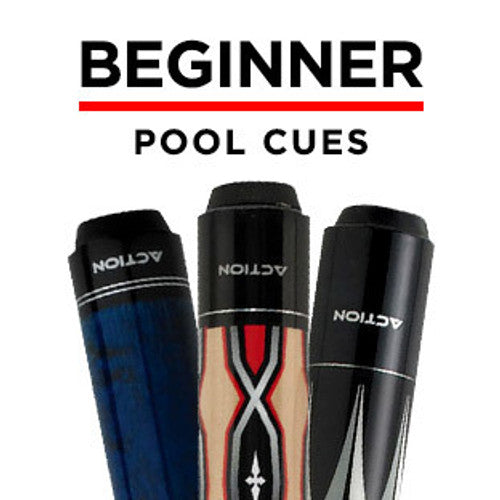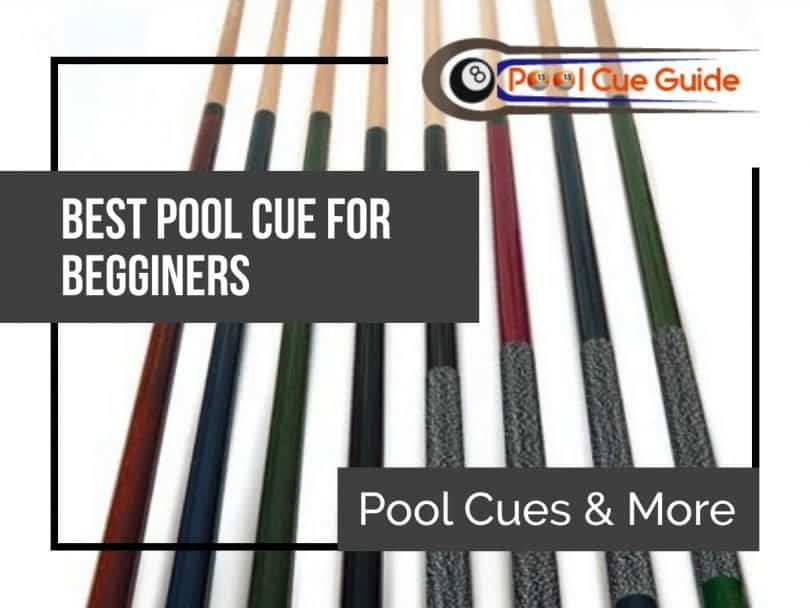Choosing the right beginner pool cues can significantly impact your performance and enjoyment of the game. If you're new to billiards, selecting a cue stick might feel overwhelming due to the variety of options available. However, understanding the key factors that make a good cue stick will help you make a smart purchase.
Billiards is more than just a game; it's a craft that requires precision, skill, and the right equipment. As a beginner, investing in a quality cue stick is essential to improving your game. Whether you're playing for fun or planning to compete, having the right tools will make a noticeable difference.
In this comprehensive guide, we'll explore everything you need to know about beginner pool cues, including factors to consider, recommended brands, and tips for maintaining your cue stick. By the end of this article, you'll be equipped with the knowledge to make an informed decision and start your billiards journey on the right foot.
Read also:Anthony Ammirati The Visionary Behind The Creative Revolution
Table of Contents
- Biography (If Applicable)
- Understanding Beginner Pool Cues
- Key Factors to Consider When Choosing a Cue
- Types of Beginner Pool Cues
- Recommended Brands for Beginners
- Price Range for Beginner Pool Cues
- How to Maintain Your Pool Cue
- Tips for Beginners Using Pool Cues
- Common Mistakes to Avoid
- Frequently Asked Questions
Understanding Beginner Pool Cues
Beginner pool cues are specifically designed for players who are new to the game. These cues are crafted to provide a balance between affordability, durability, and performance. Unlike professional-grade cues, beginner cues focus on offering a reliable playing experience without breaking the bank.
When selecting a beginner pool cue, it's important to consider factors such as weight, material, and grip. Each of these elements plays a crucial role in how the cue feels and performs during gameplay. Understanding these aspects will help you find a cue that matches your playing style and preferences.
Key Factors to Consider When Choosing a Cue
Choosing the right beginner pool cue involves evaluating several key factors. Here are some of the most important considerations:
- Weight: Cue sticks typically range from 18 to 21 ounces. Beginners should opt for a cue in the middle range (19-20 ounces) for better control and accuracy.
- Material: Common materials include wood, fiberglass, and carbon fiber. Wood cues are traditional and offer a natural feel, while composite materials provide durability and resistance to environmental changes.
- Grip: The grip affects how comfortable the cue feels in your hand. Look for cues with ergonomic designs or wraps that enhance grip and reduce hand fatigue.
- Tip: The tip of the cue influences how well you can control the cue ball. Leather tips are the most common and provide a good balance between control and durability.
Types of Beginner Pool Cues
Beginner pool cues come in various types, each catering to different needs and preferences. Here are the main categories:
Wooden Cues
Wooden cues are the most traditional option and are favored by many beginners for their natural feel and classic appearance. They are typically made from maple or ash wood and offer excellent performance for their price.
Composite Cues
Composite cues are made from materials like fiberglass or carbon fiber. These cues are more resistant to warping and environmental changes, making them a great choice for players who live in humid or extreme climates.
Read also:Charissa Thompson The Rising Star In The Entertainment Industry
Recommended Brands for Beginners
Several brands specialize in producing high-quality beginner pool cues. Here are some of the top brands to consider:
- cue: Known for its affordable yet durable cues, this brand is a favorite among beginners.
- McDermott: Offers a range of cues with advanced features, making them suitable for players looking to upgrade their skills.
- Predator: Renowned for its innovative designs and superior performance, Predator cues are a great investment for serious beginners.
Price Range for Beginner Pool Cues
The price of beginner pool cues can vary widely depending on the brand, material, and features. Generally, you can find quality cues in the following price ranges:
- Basic wooden cues: $30-$80
- Mid-range composite cues: $80-$150
- Premium beginner cues: $150-$300
While it's tempting to go for the cheapest option, investing in a cue within the mid-range will provide better performance and longevity.
How to Maintain Your Pool Cue
Proper maintenance is essential to ensure your beginner pool cue remains in good condition. Here are some tips for maintaining your cue:
- Regularly clean the cue with a soft cloth to remove dirt and oils.
- Store the cue in a dry, cool place to prevent warping.
- Check the tip regularly and replace it if it becomes worn or cracked.
- Use a cue case to protect the cue during transport.
Tips for Beginners Using Pool Cues
As a beginner, there are several tips you can follow to improve your gameplay and get the most out of your cue:
- Practice proper grip and stance to enhance your accuracy.
- Experiment with different weights and materials to find what works best for you.
- Focus on mastering the basics before moving on to advanced techniques.
Common Mistakes to Avoid
Many beginners make mistakes when selecting and using their pool cues. Here are some common pitfalls to avoid:
- Choosing a cue that's too heavy or too light for your skill level.
- Not investing in a quality cue, which can hinder your progress.
- Ignoring maintenance, leading to premature wear and tear.
Frequently Asked Questions
What is the best material for beginner pool cues?
Wood is the most popular material for beginner cues due to its natural feel and affordability. However, composite materials like fiberglass and carbon fiber are also excellent choices for their durability and resistance to environmental changes.
How often should I replace the tip of my cue?
The frequency of tip replacement depends on how often you play and the quality of the tip. Generally, you should replace the tip every 6-12 months for casual players and more frequently for regular players.
Can I use a beginner cue for competitive play?
While beginner cues are designed for casual play, some higher-end models can perform well in competitive settings. However, as you progress in skill, you may want to upgrade to a more advanced cue tailored for competitive play.
Kesimpulan
Selecting the right beginner pool cues is a crucial step in your billiards journey. By considering factors such as weight, material, and grip, you can find a cue that suits your needs and enhances your gameplay. Remember to maintain your cue properly and practice regularly to improve your skills.
We encourage you to share your thoughts and experiences in the comments section below. If you found this guide helpful, please consider sharing it with fellow billiards enthusiasts. For more informative articles on billiards and other sports, explore our website further.
Data and statistics used in this article are sourced from reputable websites such as Billiards Digest and USTA Billiards. These sources ensure the accuracy and reliability of the information provided.


